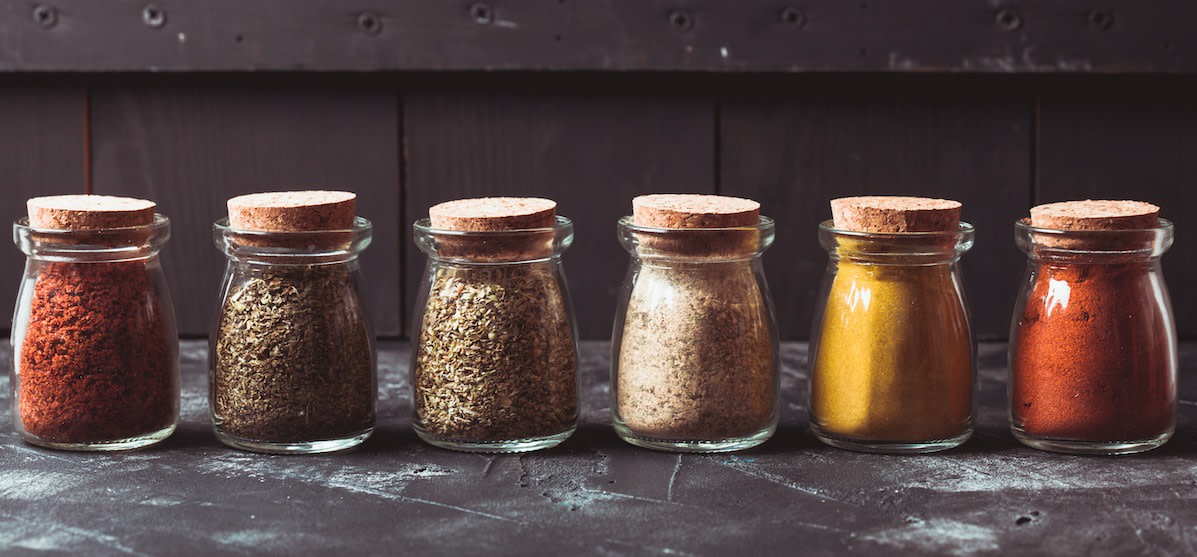Do Spices Go Bad? How to Store Spices Properly
Written by MasterClass
Last updated: Jan 6, 2022 • 3 min read
If you’re a home cook who loves using spices, you may have wondered how long they will last. Consuming spices past their prime is not harmful, but they have a shelf life when they have their best flavor.
Learn From the Best
Do Spices Go Bad?
Spices, seasonings, and dried herbs don’t go bad but they will lose their potency and flavor. While they do not turn rancid and become unsafe to consume expired spices will not be as flavorful as fresh spices in their prime.
The best way to test the potency of your cooking spices is to crush a teaspoon’s worth in your hand and smell it. If the spice is still aromatic, it is good to use. If it smells weak or dull, discard the spice immediately.
How Long Do Spices Last?
The shelf life of your spices depends on how the producers processed them. For example, grinding increases the surface area exposed to oxygen and reduces the spice’s potency. Dried herbs last for a slightly shorter time than spices. Salt, however, never loses its potency and you can use it for as long as you like. Here’s how long various spices and herbs last:
- Ground spices: Ground spices are powdered herbs that you can sprinkle right into your food without grinding them. They will keep for up to three years. Ground spices include allspice, cayenne pepper, chili powder, ground cinnamon, ground cumin, garlic powder, ground ginger, onion powder, paprika, red pepper flakes, and turmeric.
- Herbs: Whole, dried leafy herbs maintain their best quality for up to a year, but their flavor can last for up to three years. These herbs include basil, bay leaves, cilantro, oregano, rosemary, and thyme.
- Seasoning blends: Seasoning blends include a mix of multiple herbs and spices to achieve the characteristic taste of a certain type of cuisine. These blends will last for up to three years. Common seasoning blends include Italian seasoning, fajita seasoning, taco seasoning, or za’atar.
- Whole spices: Whole spices will keep for up to four years, making them the most shelf-stable option. Common whole spices include black peppercorns, cinnamon sticks, caraway seeds, cloves, coriander, and cumin seeds.
How to Store Spices for Optimal Freshness
Many storage solutions can lengthen the lifespan of your spices. To make more cabinet space for your spice storage, install a spice organizer or a lazy susan inside a kitchen cabinet. Alternatively, install a spice organizer in one of your kitchen drawers and label their tops for easy access. Here’s how to ensure your spices maintain their flavor for extended periods:
- Buy whole spices. The best way to keep your spice collection fresh for as long as possible is to buy whole, unground spices. For example, whole peppercorns have a much longer shelf life than ground pepper. Buy whole spices and grind them as needed using a spice grinder or mortar and pestle.
- Label with the date. Write the month and year of purchase directly on the spice container to give you a sense of when to discard and replace old spices.
- Store in airtight containers. Store your spices in tightly-sealed, airtight glass containers to prevent premature oxygenation, which reduces their potency. Most spices from the grocery store come in small glass jars or tins, so it’s acceptable to keep them in their original containers. However, some spices come in small plastic sachets that do not reseal. Transfer these fresh spices into airtight containers or spice jars once you open them to retain freshness.
- Store in a cool, dark place. It’s common to store spices on a spice rack on your kitchen counter. However, the countertop is not an ideal storage location for spices because the kitchen can be warm at times, and heat hastens their degradation. Keep spices off of your countertop and out of the direct sunlight. Instead, store spices in a cool, dry place like a spice drawer or spice cabinet to keep them fresh.
Mise En Place
To perfect the mother sauces and make French cuisine at home, you must master essential cooking techniques. Discover Chef Thomas Keller’s approach to setting up a home kitchen and sourcing quality ingredients like fish and clams when you sign up for the MasterClass Annual Membership.
